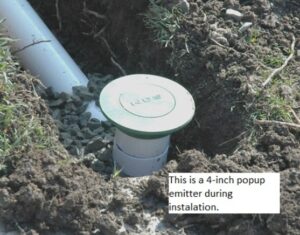Choosing the right sump pump contractor Charlotte NC is a crucial decision for homeowners who want to ensure the integrity and safety of their basements. A well-installed sump pump can prevent water damage, mold growth, and costly repairs. This guide will provide you with essential tips and considerations for selecting a qualified sump pump contractor, while also touching on related topics such as commercial mold removal, drywall removal and replacement, and vapor barrier installation.
Why Is It Important to Hire a Qualified Sump Pump Contractor?
The Role of a Sump Pump
A sump pump is designed to remove excess water from your basement or crawl space, protecting your home from flooding and water damage. Inadequate or improper installation can lead to malfunctions, creating even more significant problems down the line. Hiring the right contractor can save you time, money, and stress.
The Risks of DIY or Unqualified Work
While it may be tempting to handle sump pump installation yourself or hire the cheapest option, consider the potential risks:
• Inadequate Installation: Poor installation may lead to pump failure, which can result in costly water damage and mold growth.
• Safety Hazards: Improper electrical connections can create fire hazards or shock risks.
• Hidden Costs: Low-quality work might require further repairs or replacements, leading to unexpected expenses.
What to Look for When Choosing a Sump Pump Contractor
1. Experience and Expertise
One of the first things to assess is the contractor’s experience level. Consider the following:
• Years in Business: Contractors with extensive experience are likely to be more skilled and knowledgeable.
• Specialization: Ensure the contractor specializes in sump pump installation and related services.
2. Reputation and Reviews
Before making a decision, check the contractor’s reputation:
• Online Reviews: Websites like Yelp, Google Reviews, and Angie’s List can provide insights into previous customers’ experiences.
• Referrals: Ask friends, family, or neighbors for recommendations. Word-of-mouth referrals can be invaluable.
3. Licenses and Certifications
Ensure the contractor is properly licensed and certified. A licensed contractor is more likely to adhere to local building codes and regulations, which is essential for both safety and quality.
4. Insurance Coverage
Verify that the contractor has liability insurance and worker’s compensation coverage. This protects you from financial liability in case of accidents or damage during the installation process.
5. Written Estimates and Contracts
Always request a written estimate and contract before any work begins. Here are some points to consider:
• Detailed Estimates: The estimate should include a breakdown of costs for materials and labor, as well as any additional services needed, such as drywall removal and replacement or vapor barrier installation.
• Clear Contracts: Contracts should outline the scope of work, timelines, and payment terms to prevent misunderstandings later on.
Questions to Ask Potential Contractors
Before you finalize your choice, consider asking potential contractors the following questions:
1. What Brands of Sump Pumps Do You Recommend?
A knowledgeable contractor should be familiar with various sump pump brands and can guide you in selecting a model that fits your needs. Look for recommendations based on reliability and performance.
2. Do You Offer Maintenance Services?
Inquire if the contractor provides maintenance services. Regular maintenance is essential for ensuring your sump pump continues to function properly.
3. How Do You Handle Waterproofing?
If you’re concerned about water issues in your basement, ask about waterproofing solutions. This can include vapor barrier installation and other moisture control methods that can prevent mold growth and structural damage.
4. Can You Provide References?
Ask for references from previous clients. Speaking with past customers can help you gauge the contractor’s work quality and professionalism.
5. What Is Your Warranty Policy?
Inquire about warranties on both the sump pump and the installation. A reputable contractor will offer warranties to protect your investment.
Additional Services That May Be Needed
Commercial Mold Removal
If your home has previously experienced water issues, mold growth may be a concern. A sump pump contractor who also offers commercial mold removal services can help ensure your home is safe and healthy.
Drywall Removal and Replacement
In cases of significant water damage, drywall removal and replacement might be necessary. Some contractors offer these services, so be sure to ask if it’s included in their capabilities.
Vapor Barrier Installation
Vapor barriers help control humidity and moisture levels in your basement, preventing mold growth and structural damage. Confirm if the contractor provides vapor barrier installation as part of their services.
Conclusion
Selecting the right sump pump contractor is a critical step in safeguarding your home from water damage. By considering factors such as experience, reputation, and service offerings, you can find a contractor who will meet your needs effectively.
Don’t overlook the importance of related services like commercial mold removal, drywall removal and replacement, and vapor barrier installation. These services work hand-in-hand with your sump pump system to provide comprehensive protection for your home.
Take your time, do your research, and don’t hesitate to ask questions. By making an informed decision, you can ensure your home remains safe, dry, and comfortable for years to come. crawl space cleaning Charlotte NC




More Stories
Louis Vuitton Wall Art: The Ultimate Statement in Luxury Interior Decor
How to Choose the Right Wedding Photographer in Denver Without Stress
What to Know Before Hiring a Gutter Company in Gainesville FL: A Friendly Guide